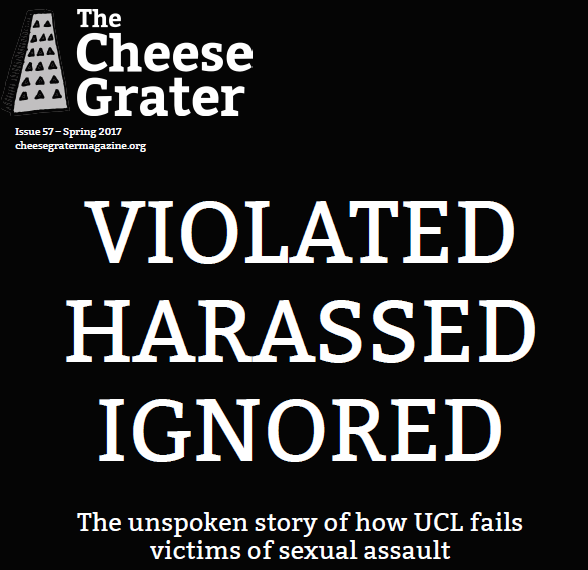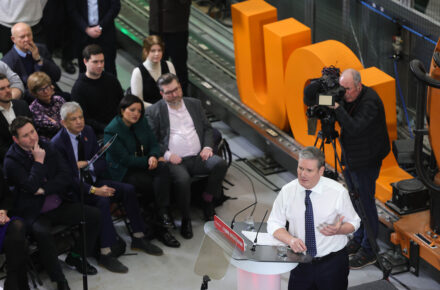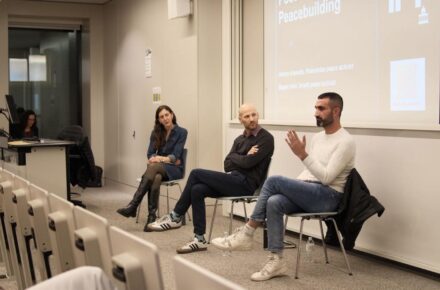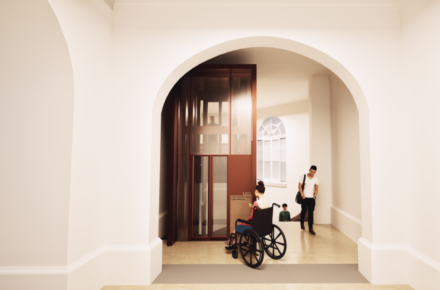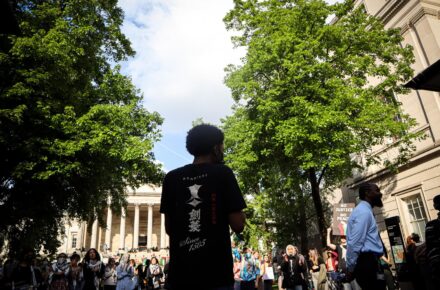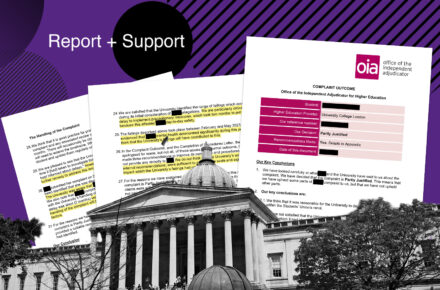“They push you around the system until you give up. There is no system to help”.
These are the words of a UCL medical student who was raped in her first year at university. Her story, alongside many others, exposes a pervading culture of sexual assault and violence that has been left unchecked by staff who simply aren’t equipped to take responsibility for the crisis.
The medic, who wishes to remain anonymous, told The Cheese Grater how she failed her first year exams and battled with suicide and depression as a result of her experience. She first sought help from Student Psychological Services (SPS), who provided her with short-term counselling. However, SPS can only provide interim support and are not trained or qualified to provide help to victims of sexual assault.
The medic approached the Department of Medicine’s Student Support, a separate entity to SPS, but found a system that was unhelpful and unfriendly. The staff member she saw described her as “rude and unpleasant” in an official report.
Another student who was referred to the same staff member said that she was worried about seeing her attacker at Sports Night. She was told to “just stop going”.
After being passed back and forth between various NHS and UCL doctors, the student was advised to take a year off medicine and repeat her first year. On her year out she was not afforded any support by UCL. When she returned, she was offered “close supervision” by Student Support, which consisted of two meetings with two separate people.
Dr. Deborah Gill, the Dean of Medicine, told us that this was an “unfortunate case” and had “slipped through the gaps” but that “loads of people have an amazing experience with Student Support.” Another member of the Department of Medicine, Dr. William Coppola, explained that he had recently reviewed “how we can further prevent unwanted behaviours and attitudes developing in our students.” These assurances aside, the inescapable picture is of a system riddled with problems in communication, coherence, and competency.
No Communication
After years of lobbying from various UCLU Women’s Officers, UCL recently hired an Independent Sexual Violence Advocate from Rape Crisis, who provides independent and confidential advice and information to victims. However, the counsellor only comes to UCL once a month and is seen by appointment only. Last year’s Women’s Officer, Natalie James, recounted to The Cheese Grater how she only found out about the new appointment second-hand at an external meeting.
“Being kept out of the loop like that,” James said, “is just demeaning really.” For her, this is a sign of “a reluctance, particularly among more senior staff, to communicate with UCLU on important issues.”
This lack of communication hamstrings a system that is already struggling to cope. No-one is sure to whom they should refer students, and no-one wants to take ultimate responsibility. The matrix that details the referral system, seen by The Cheese Grater, would test the decoding capabilities of Bletchley Park’s finest.
Overly Bureaucratic
Students are bounced around in a kafkaesque bureaucratic nightmare. When we asked Dr. Gill about who would deal with incidents, we were pointed in the direction of Denise Long at Student Wellbeing, who then referred us to UCL Student Mediator, Dr. Ruth Siddall. Dr. Gill agreed that ‘students get confused what is the right route’. This is symptomatic of a system where roles frequently overlap and a clear structure is lacking.
Sam Nicholson, UCLU’s current Women’s Officer, noted that despite there being an online form to report sexual harassment and violence, it is not fit for purpose and barely any people even know about it. One first year student who recently had to use this form told The Cheese Grater how they found the process off-putting and arduous.
This is compounded by the decentralisation of the UCL departments, who are also sometimes tasked with dealing with complaints of sexual assault. The departments aren’t sufficiently trained and don’t know where to send students, hindering victims from accessing the support that they need. Sarah Guise, UCL Equalities Officer admitted that UCLU had raised the issue with UCL before and said that, “it is one we take very seriously, which is why we’re looking to implement local training to tackle this.”
Harassment at UCLU societies
The pervasive culture of sexual harassment and assault is no less present in UCLU’s clubs and societies. However, little seems to be done about it. When asked how many cases of sexual assault they have seen, Nicholson simply replied, “too many”. Indeed, a report was made to Nicholson about a month ago alleging that a male rugby player had grabbed the heads of two female players at Phineas, forcing them to “smell his fingers” and asking them whether they felt “uncomfortable playing with a bunch of dykes”. Those who complained also allege that Nick Edmonds, UCLU Activities and Events Officer, who is the officer responsible for UCLU’s Pride in Sport campaign and a proponent of the Zero Tolerance campaign, who was present on the night, dismissed the complaints as the perpetrator was drunk. Edmonds initially denied ever having been there, but has since formally apologised to those involved.
Men’s Rugby were also reported for sexual harassment by several members of the Netball team after an incident on their coach to the sports ground.
These stories are but a snapshot of the wider problem at UCL, as at other universities, of the normalised culture of sexual harassment. When cases are reported, the system put in place by UCL and other departments are overly bureaucratic and confusing, discouraging complaints and leaving students isolated and without support. It is a system bloated with incompetence, but devoid of any sort of hierarchy. Ultimately, it seems that no-one wants to be left responsible, resulting in those who are most vulnerable suffering alone.
Oumou Longley and Jason Murugesu
Additional reporting: Olivia Angier, Peter Daniels, Katerina Edgar, Weronika Strzyżyńska and Ollie Phelan
If you, or someone you know, have been affected by the issues raised in this story, you can contact the Union’s Women’s Officer, Rape Crisis or talk to UCL’s Sexual Violence Advisor

